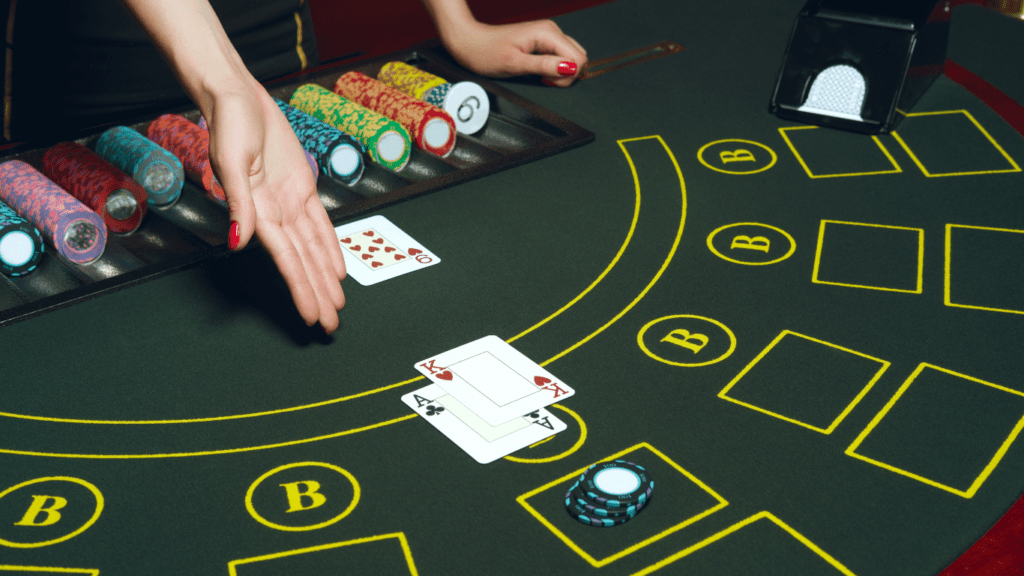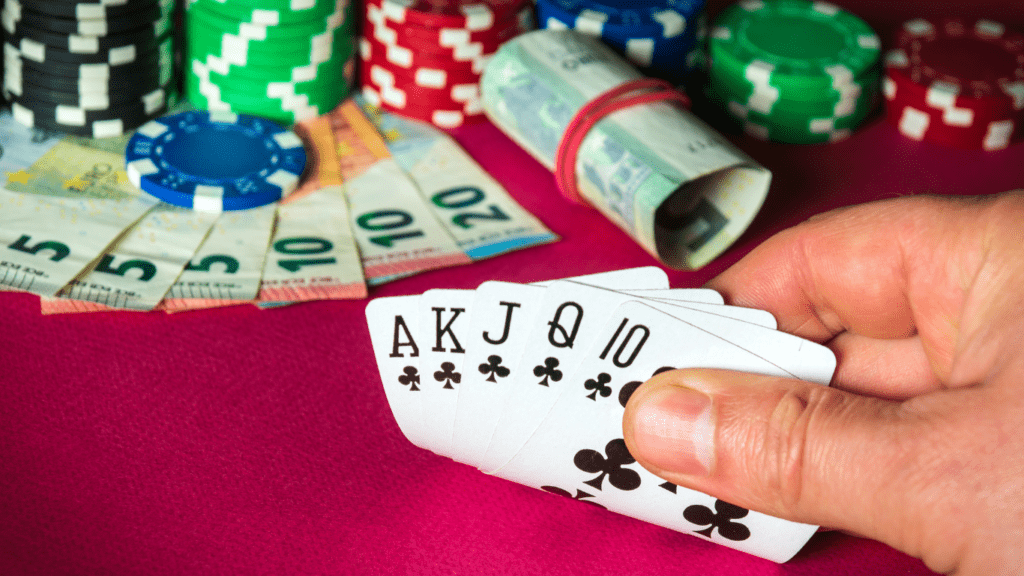Understanding the House Edge
Understanding the house edge is crucial for those aiming to improve their odds at casino games. This concept dictates the advantage that casinos retain over players in the long term.
What is the House Edge?
The house edge represents the percentage of each bet that the casino statistically expects to retain as profit. For instance, if a game has a house edge of 5%, the casino expects to keep $0.05 of every dollar wagered over time. This percentage varies across different games, influencing how players strategize their bets. Blackjack typically has one of the lowest house edges, around 0.5% with optimal play, whereas slot machines can range from 2% to 10%, depending on the machine and location.
How Casinos Leverage the House Edge
Casinos design games to ensure they maintain this edge over the player. They use psychological strategies and game dynamics to encourage longer play sessions, increasing the probability that the house edge works in their favor. For example, providing a variety of slot machines with attractive themes keeps players engaged. Offering complimentary drinks and amenities promotes extended time on the floor. By leveraging these tactics, casinos optimize player engagement and maximize their profit margins.
Strategies to Outsmart the House
Gambling strategies can level the playing field, making the most of the opportunities to beat the odds. Approaching these tactics wisely helps in crafting informed decisions while playing.
Card Counting in Blackjack
Card counting in blackjack involves tracking which cards have been played to predict future hands better. Mastering this technique reduces the house edge significantly. For instance, when high cards remain in the deck, the player’s chances improve, and adjusting bets becomes advantageous. Though not illegal, casinos frown upon card counting, and players risk being asked to leave if suspected.
Utilizing Betting Systems
Several betting systems, like the Martingale and Fibonacci, exist to guide players on stake adjustments based on wins and losses. The Martingale strategy involves doubling bets after each loss, aiming to cover previous losses with a win. Conversely, the Fibonacci system uses a sequence where each number is the sum of the two preceding ones, with bets increased accordingly. While these systems help manage bankrolls, relying solely on them can be risky, given their inherent limitations.
Exploiting Sports Betting Markets
Sports betting markets offer chances to leverage knowledge of sports and teams. Sharp bettors exploit these markets by performing thorough research and identifying value bets, where odds don’t accurately reflect an outcome’s probability. Tracking player performance, team statistics, and even weather conditions can provide an edge. Comparing odds across different sportsbooks helps find the best value, enhancing the potential for profitability.
Games with the Best Odds

Certain casino games offer better odds, allowing players to enhance their strategy and increase their chances of winning. By understanding these games, like:
- blackjack
- poker
- craps
players can make informed decisions and potentially outsmart the house.
- Blackjack
Blackjack stands out with a low house edge of around 0.5%, assuming optimal play. I focus on strategies like basic strategy charts and card counting, which provide a structured method for deciding when to hit, stand, or double down. The dynamic of competing only against the dealer and not other players allows more control over the outcomes. This game emphasizes skill and strategy over mere chance.
- Poker
Poker differs from other casino games as it pits players against each other rather than the house, minimizing its inherent advantage. I find that skillful play, including calculating odds and reading opponents, greatly influences success. Bluffing, understanding position, and exploiting mistakes are critical elements. Consistent practice helps refine these techniques, giving an edge over less experienced players.
- Craps
Craps offers some of the best odds with bets like Pass/Don’t Pass and Come/Don’t Come, with house edges close to 1.4%. Placing odds bets can further improve these odds since they carry no house edge. I use strategies like setting a preset budget and focusing on low-house-edge bets to manage risk effectively. This fast-paced game combines strategy with excitement, engaging seasoned players and novices alike.
The Role of Psychology in Gambling
Understanding the psychological factors in gambling plays a crucial role in outsmarting the house. Emotions and decision-making processes can significantly impact a player’s performance and success.
Managing Emotions
Keeping emotions in check is vital for any gambler. High-pressure situations or experiencing consecutive losses can lead to emotional decision-making, which often results in further losses. I focus on maintaining calmness and composure to make strategic choices. Techniques like deep breathing or taking short breaks help me regain focus and prevent impulsive behavior. Studies show that emotional regulation directly affects gambling performance, making it an essential skill for players seeking success.
Knowing When to Walk Away
Recognizing the optimal moment to stop is a skill that separates successful gamblers from unsuccessful ones. Knowing when it’s time to walk away from a game, whether after a win or loss, is integral to preserving bankroll and preventing emotional exhaustion. I establish strict time and monetary limits before playing and adhere to them diligently. This approach not only protects financial resources but also prevents chasing losses, a common pitfall that leads to greater financial setbacks. Understanding the concept of “quitting while ahead” serves as a strategic advantage in gambling.
Legal and Ethical Considerations
While the thrill of outsmarting the house intrigues many, ensuring compliance with legal and ethical standards is crucial. Following responsible gambling practices and understanding gambling laws helps protect players and maintain integrity.
Responsible Gambling
Promoting responsible gambling is essential. I focus on setting limits for time and money when visiting casinos. This practice prevents chasing losses and protects my bankroll. Using tools like self-exclusion programs and seeking support from organizations such as Gamblers Anonymous helps maintain control over gambling habits. Staying informed about game rules and odds enhances decision-making skills and encourages fair play.
Understanding Gambling Laws
Compliance with gambling laws is key. I research jurisdiction-specific regulations before engaging in any form of gambling to avoid potential legal issues. Understanding the legal age for gambling, permissible forms of betting, and restrictions specific to online platforms ensures adherence to the law. Staying updated on changes in gambling laws boosts my confidence as a responsible gambler, ensuring a safer and more enjoyable gaming experience.



 _____
Doyle Ginn – Lead Analyst & Odds Strategist
Doyle Ginn is the numbers guru of Play Gambler Cash. With years of experience decoding betting odds and uncovering hidden patterns, Doyle provides players with actionable strategies to improve their winning chances. His sharp analytical skills make him an invaluable resource for gamblers looking to beat the odds.
_____
Doyle Ginn – Lead Analyst & Odds Strategist
Doyle Ginn is the numbers guru of Play Gambler Cash. With years of experience decoding betting odds and uncovering hidden patterns, Doyle provides players with actionable strategies to improve their winning chances. His sharp analytical skills make him an invaluable resource for gamblers looking to beat the odds.